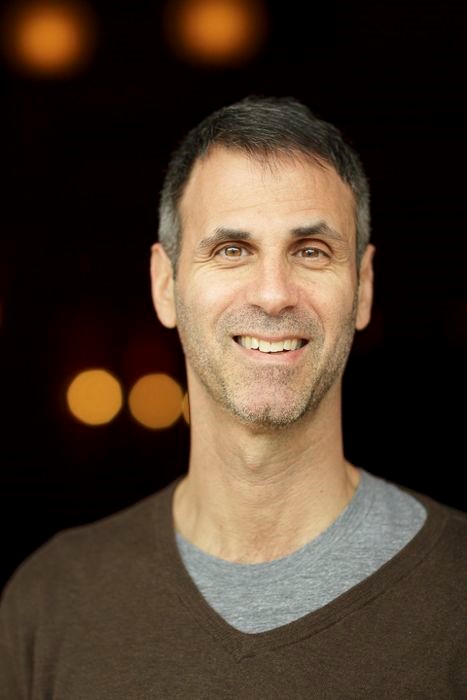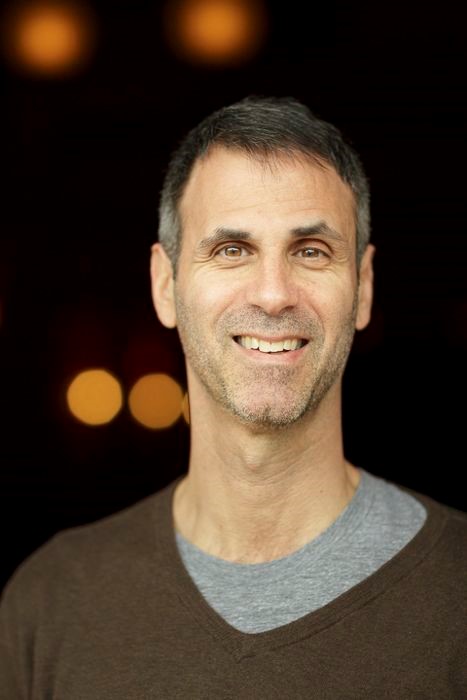 Bestselling author Steve Almond admits he's a little quirky. This aspect of his personality certainly shines through in his successful endeavors throughout the creative landscape.
Bestselling author Steve Almond admits he's a little quirky. This aspect of his personality certainly shines through in his successful endeavors throughout the creative landscape.
"My books are a map of my obsessions," Almond confesses.
Best known for writing Candyfreak, which is based on his obsession with candy and the confectionary industry, the 51-year-old has dabbled in all sorts of writing adventures throughout his career. He also co-hosts a thought-provoking New York Times advice podcast called "Dear Sugars" with Cheryl Strayed, an award-winning writer and memoirist.
"Certain people seek a path in life through candy," he explains. "We all have candy we're addicted to that helps us ease some of the hardships of life. That's how I came up with the idea to write Candyfreak."
In addition to the book, his website – stevealmondjoy.org – and his other online footprints reflect the Almond Joy play-on-words name he uses and his sweet tooth.
Growing into an Author
In high school, Almond began writing what he calls a "silly column" for the school newspaper. He was an English major in college and pursued a handful of journalism-related internships. He worked for a daily paper in El Paso, Texas prior to joining the Miami New Times in South Florida in the 1990s as an investigative reporter.
"I've always liked writing and storytelling," he says. "While I worked as a more traditional journalist, I started reading fiction and became more interested in creative writing. I started to engage in more imaginative stories that I would dream up. For the last 20 years, I've pivoted back and forth between nonfiction and fictional short stories."
In a day and age of constantly-evolving forms of media, Almond has carved out his own space across a wide array of platforms like others have had to do.
"Like lots of writers out there, I like to say I have many different jobs to help support my bad habit," he jokes
Visiting Saint Leo's Creative Writing Program
In July 2018, Almond had the opportunity to visit the Saint Leo University campus during the weeklong residency for the school's creative writing graduate program. He was invited by the program director and longtime friend, Dr. Steve Kistulentz.
"I really had a great time there," he says. "I've known Steve for many years, and I've always admired him as a great fiction writer, poet and teacher. He inspires students and makes them believe in literature and themselves."
He adds that he was very inspired by the supportive nature of the students.
"You can always tell when students are passionate and believe in one another. Plus, when students are not as competitive and want to help each other be better writers, that's when you know you're in a good environment."
Almond enjoyed the diversity of the group and feels he connected well with the varied group of students.
"It's always exciting to know what you're talking about is universal enough for writers of all backgrounds to appreciate. When you're teaching, you're always hoping to light that flame and transfer that insight from teacher to student. I know I'm fairly brash in how I present certain things about how beautiful yet difficult writing can be, and the students all seemed to be engaged."
Knowing he's making a positive impact through teaching is so rewarding to him, he adds.
"It's tremendously exciting to know I have practical advice to help them do the heavy lifting on their own," he says.
Becoming a Better Writer
He offers up some keys to success for writers of all ages and backgrounds.
"In my case, I generally jot down ideas and then organize them into a narrative. That's how my mind works. I tell students about what I do, but it might not work for them. Each writer has to consider which style works best."
He also believes a writer's outlook changes over time.
"You have to do a self-inventory," he says. "When I was in my 20s and 30s, I could procrastinate a little more and dream big. Now that I'm in my 50s and have a family, it's a different calculus on how much time I have to devote to writing. You have to be your own boss and put yourself in control of your creative life."
When it comes to publishing, Almond has taken both paths– working with traditional publishers and self-publishing some of his own works.
"With self-publishing, it's usually the smaller and more unusual books I will publish myself. I wanted to create some shorter idiosyncratic books and put them out there into the world in a personal way. But I would not advocate self-publishing for writers who are early on in their careers. Self-publishing can seem quick and easy, but there's a lot of time you have to devote on the back end as far as marketing the book. Publishers handle the design, copy editing, printing, distribution and promotion of the book so you can focus on the main craft of writing."
LEARN MORE: In addition to Almond's website, you can also follow him on Facebook and Twitter.
Photo credit: The photograph included in this blog article was provided by Steve Almond and is used with permission.

 Bestselling author Steve Almond admits he's a little quirky. This aspect of his personality certainly shines through in his successful endeavors throughout the creative landscape.
Bestselling author Steve Almond admits he's a little quirky. This aspect of his personality certainly shines through in his successful endeavors throughout the creative landscape.